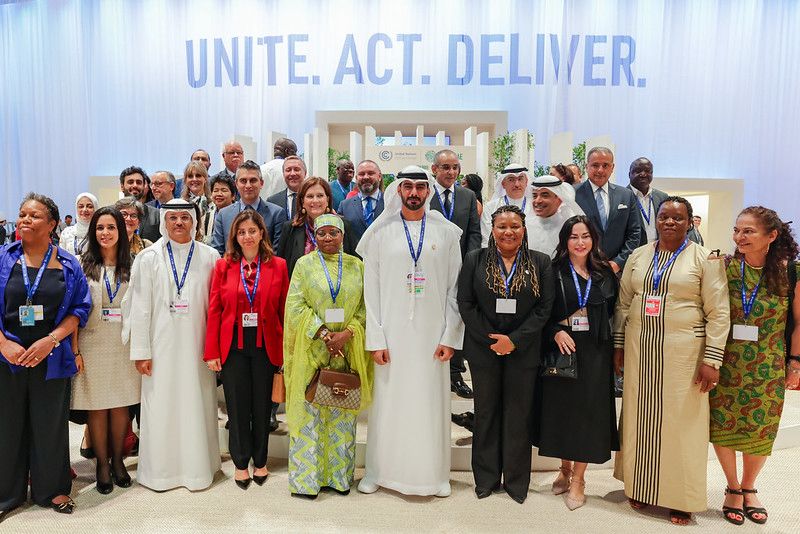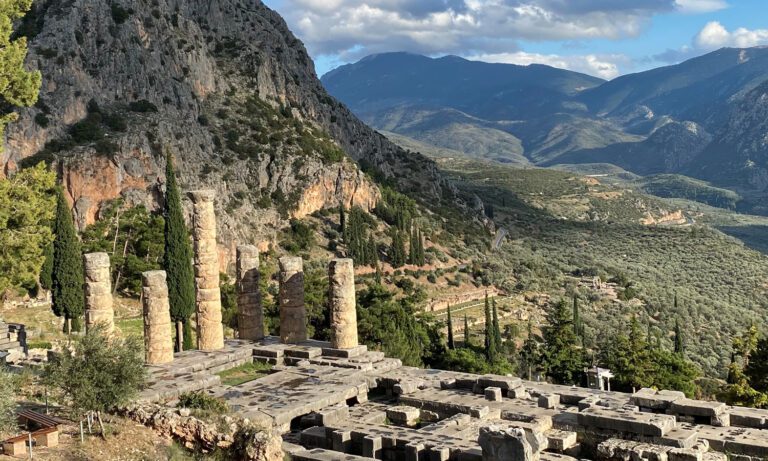The results of the latest international climate negotiations at COP28 in Dubai in December, while taking important steps, fell far short of what was needed to avoid a climate catastrophe. Despite formally recognizing for the first time that a transition away from fossil fuel use is necessary, countries have failed to agree on a rapid, equitable and funded phase-out of these fuels. scientists claim. One of the great positive points of COP28 was the creation of a loss and damage fund to combat climate impacts in the countries of the South. However, most developed countries, including the United States made only minimal, almost derisory, financial commitments to that. And one of the few other glimmers of hope that emerged from COP28 was the growing recognition of the importance of cultural heritage and cultural rights in climate action and responses. This issue progressed substantially at the meeting in three ways.
1. Recognition of cultural heritage as one of the seven thematic targets of the new framework for the global adaptation goal.
One of the major agreements at COP28 was on a new framework to achieve the Global Adaptation Goal (GGA), which for the first time identified cultural heritage as a central theme. The GGA urges nations to protect “cultural heritage against the impacts of climate-related risks by developing adaptation strategies to preserve cultural practices and heritage sites and designing climate-resilient infrastructure, guided by traditional knowledge, indigenous peoples’ knowledge and systems of local knowledge.“. This recognition not only of the vital importance of tangible and intangible cultural heritage, but also of indigenous and traditional knowledge, represents a major step forward made at COP28. Unfortunately, as several delegates from the South pointed out, the framework decision on the GGA failed to provide the necessary funding for adaptation in vulnerable countries.
2. The launch of the Group of Friends of Culture-Based Climate Action
COP 28 saw the convening of the first ever multilateral meeting High-level ministerial dialogue on culture-based climate action chaired by Brazil and the United Arab Emirates. The summons, supported by the Climate Heritage Network (of which UCS is a founding member), resulted in the adoption of the Emirates Declaration on Culture-Based Climate Action, supported by more than 20 countries, including Egypt, Germany, Ghana, Greece, Italy, Jordan, Mali, Pakistan and Senegal. , Spain and Uganda. The group specifically referred to the inclusion of heritage impacts in the 6th The evaluation report and International meeting on culture, heritage and climate change co-sponsored by the Intergovernmental Panel on Climate Change (IPCC), the International Council on Monuments and Sites (ICOMOS) and UNESCO, which was held in December 2021. The Director of Science UCS Climate Change, Brenda Ekwurzel, was a contributing expert to this meeting, and her final report highlighted the importance of addressing the impacts of cultural heritage and adaptation in future IPCC reports, and to give full weight to indigenous and traditional knowledge.
THE Emirates Statement recognize “the devastating impacts of climate change are already felt today by populations around the world, the threat to tangible and intangible heritage risks leading to a significant disruption of the intergenerational transmission of socio-cultural practices, to a violation of cultural rights of peoples and communities, and a limitation of cultural diversity, thereby depriving us of valuable sources of resilience, meaning, identity, knowledge, livelihoods and economic benefits“.

At the heart of the Emirates Declaration is a commitment to “Scaling up culture and heritage-based strategies to improve adaptive capacity, build resilience, avoid maladaptation and reduce vulnerability to the impacts of climate change“. The Group of Friends has announced its intention to meet again at COP29 and, before that, to explore the possibility of a COP29 decision to launch a joint work program on culture and climate action that would be discussed at COP30 in Brazil.
3. A loss and damage fund aimed at cultural heritage
The new Loss and Damage Fund (which will be hosted at least temporarily by the World Bank) will provide financial support to developing countries for their recovery, reconstruction and rehabilitation, as well as financing to address current impacts such as sea level rise, aridification and loss of biodiversity. . Crucially, the loss and damage fund will include support not only for climate impacts that can be assigned a monetary value, but also for non-economic losses, including most types of tangible and intangible cultural heritage. Current pledges to the fund amount to almost 800 million dollarsbut we estimate that It will take at least 400 billion dollars every year by 2030. The United States has only pledged $17.5 million.

Where do we go from here?
As preparations begin for COP29 in Azerbaijan and a new IPCC assessment cycle begins, there are clear priorities to advance climate and heritage action. For example, there will be opportunities to provide feedback on measures that could be implemented by national governments, including the United States, under the recently agreed cultural heritage theme of the Global Goal on ‘adaptation. At the same time, the UCS will also work to increase the number of countries supporting the goal of the Emirates Declaration to launch a new work program on cultural heritage and climate action at COP29, and to define what such a work program should include. At the IPCC, the UCS will advocate for increased recognition of indigenous and traditional knowledge, as well as the inclusion of more indigenous and Southern scientists.
Furthermore, for the Loss and Damage Fund to be truly effective in addressing irreversible climate impacts on cultural heritage, it will be necessary to develop methodologies for monitoring and evaluating non-economic loss and damage (NELD). – in particular intangible heritage such as cultural practices, languages, indigenous and traditional knowledge, ecosystem services and culturally important species of plants and animals. Much cultural heritage cannot – or, many believe, should not – be assigned a monetary value. There is therefore an urgent need to explore and develop new reparation options and ways to provide cultural reparation. An example of how this could be achieved lies in the New Zealand project. Waitangi Tribunal a process which, in addition to financial payments, used land sovereignty grants, place name changes and joint resource management agreements to resolve Aboriginal compensation claims dating back to the colonial era . Non-economic losses and damages are context-specific, and it is essential that affected communities are fully involved in identifying and assessing losses, as well as determining what remedies can be applied. UCS is committed to helping find and support innovative compensation mechanisms for cultural loss and damage.


